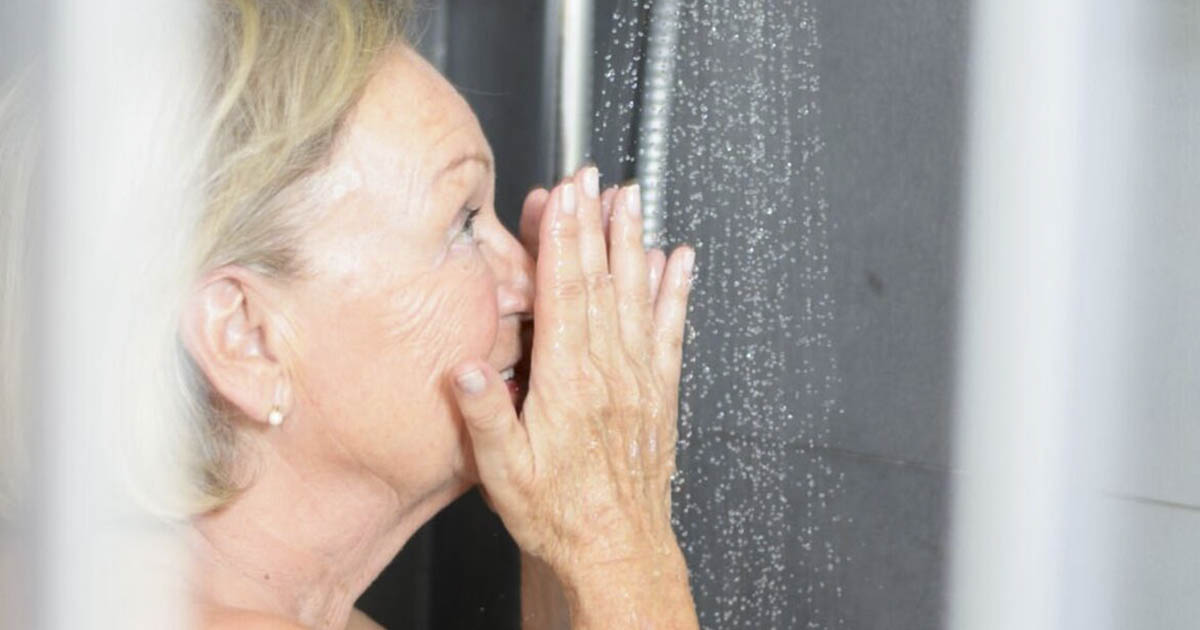Early diagnosis of dementia is crucial for providing effective care and treatment to individuals. While memory loss and cognitive decline are commonly associated with dementia, there are other signs to be aware of. One such sign is a decreased loss of smell, which can be observed during everyday activities like taking a shower. According to a study conducted by the University of Chicago, a decline in a person’s sense of smell may serve as an early indication of dementia. Let’s explore this intriguing finding and its implications.
The Prevalence of Dementia

Dementia affects a significant number of individuals worldwide and is a growing concern as the population continues to age. One in ten adults in the United States is living with dementia, and this number is expected to continue to rise in the coming years. Alzheimer’s disease is the most common cause of dementia, followed by vascular dementia, dementia with Lewy bodies, and frontotemporal dementia. Detecting the signs and symptoms of dementia early on is crucial for better management and improved quality of life for those affected.
Read More: Foods That Dementia Experts Want You to Eat More and Less Of
The Role of Sense of Smell in Dementia

Loss of smell, medically known as anosmia, can be an early indicator of dementia. A study conducted by researchers at the University of Chicago examined the sense of smell in 515 older adults with the goal of developing a smell-test screening similar to sight and hearing tests. The findings revealed a significant decline in the participants’ ability to recognize scents, suggesting a possible link to dementia.
“This study provides another clue to how a rapid decline in the sense of smell is a really good indicator of what’s going to end up structurally occurring in specific regions of the brain,” said senior author Jayant M. Pinto, professor of surgery at the University of Chicago. “We were able to show that the volume and shape of gray matter in olfactory and memory-associated areas of the brains of people with rapid decline in their sense of smell were smaller compared to people who had less severe olfactory decline,”
The Connection Between Memory and Sense of Smell

Memory plays a vital role in our ability to recognize smells. When memory function is impaired, such as in the case of dementia, it can affect our sense of smell. The University of Chicago study highlights the importance of memory in relation to our olfactory system. The researchers discovered that individuals who experienced a rapid decline in their sense of smell exhibited structural changes in specific regions of the brain associated with olfactory and memory functions. These changes were not observed in individuals with less severe olfactory decline.
Read More: This ‘Healthy Oil’ May Be Increasing Your Cholesterol and Dementia Risk
Recognizing Decreased Loss of Smell During Showering

Taking a shower is a regular part of our daily routine, and it provides an opportunity to observe changes in our senses. If you notice that you or a loved one can no longer recognize or smell familiar scents, such as shampoo, conditioner, or shower gel, it could be an early sign of dementia. The inability to detect these odors may indicate a decline in the sense of smell. It is crucial to pay attention to such changes, especially if they are accompanied by other memory or cognitive issues.
If you are concerned about your own memory and thinking abilities, it is advisable to schedule an appointment with your GP. They can assess your symptoms, conduct further evaluations if necessary, and provide appropriate guidance. If you notice signs of decreased loss of smell or other potential warning signs in someone else, encourage them to see a GP and, if possible, offer to accompany them for support.
The Bottom Line

While memory loss is commonly associated with dementia, a decreased loss of smell can also serve as an early sign of the condition. Research suggests that a decline in the sense of smell can be observed during activities like showering, where individuals may no longer recognize or smell their shampoo, conditioner, or other personal care products. Recognizing these changes and seeking medical advice at an early stage is essential for timely diagnosis and effective management of dementia. By staying vigilant and informed, we can contribute to better lives for those affected by this condition.
Read More: These Foods Help Lower Dementia, Type 2 Diabetes, and Heart Disease Risk, Study Says
Sources
- “One in 10 Older Americans Has Dementia.” CUIMC. October 24, 2022.
- “Rapid loss of smell predicts dementia and smaller brain areas linked to Alzheimer’s.” U Chicago News. Sarah Richards. July 28, 2022.

